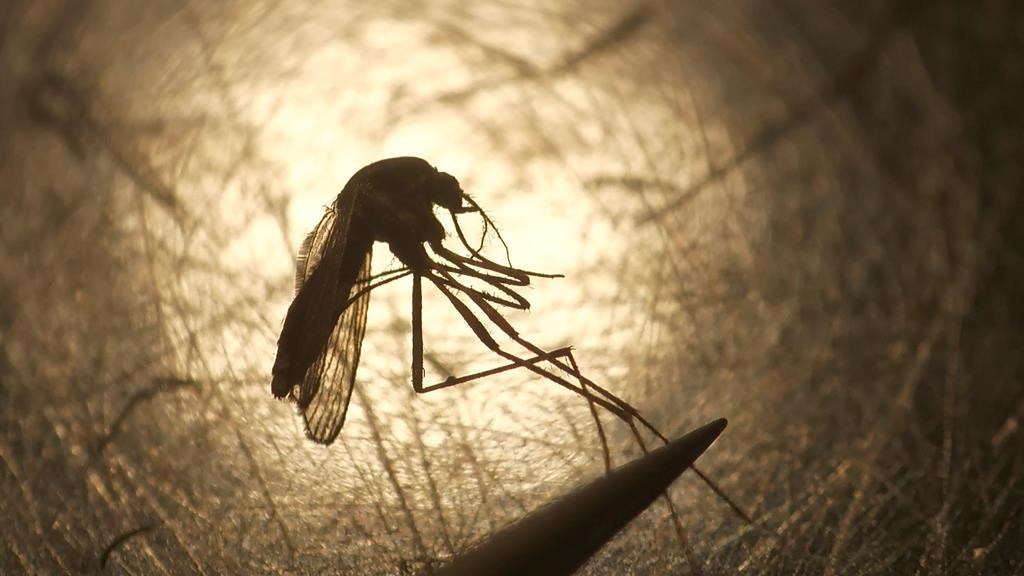As the snow melts more than a few Manitobans might be wondering whether or not the mosquitoes that will inevitably arise from the newly-forming puddles can transmit novel coronavirus.

Not too silly a question for those living in a province with a bit of a reputation for the thirsty bloodsuckers.
At a time when we could all use some good news, the World Health Organization delivers.
According to its website, WHO says mosquitoes cannot transmit COVID-19.
“To date, there has been no information nor evidence to suggest that the new coronavirus could be transmitted by mosquitoes,” reads a handy list of COVID-19 myth busters on the organization’s website.

Dr. Jason Kindrachuk, a researcher of emerging viruses at the University of Manitoba, concurs, telling Global News of all the things we have to worry about, mosquitoes aren’t among them.
“The lucky thing for us is that this virus and this family of viruses is not one that is carried by insects,” he explained. “So the likelihood of transmission is very much minimal.”
For now, it’s other people we need to watch out for, says Kindrachuk.

Get weekly health news
“What some of our concern right now is if we get to this point where social distancing works well — and it ultimately will if people adhere — we start seeing a decrease in cases (and) we start to reduce the number of social distancing parameters that we have,” he said.
“We are worried about that potential second wave, that if you reduce those parameters too quickly and everybody floods out at the same time.
“Because now you see a lot of people that weren’t exposed to the virus and that are potentially susceptible to infection.”

Currently in Manitoba, all private and public gatherings of more than 10 people are restricted and when people must go out for essentials they are told to respect physical-distancing guidelines and stay two metres, or six feet, apart.
Manitoba Premier Brian Pallister said this week the province will soon begin enforcing and possibly fining people who aren’t complying with the orders of health officials.
–With files from Brittany Greenslade

Questions about COVID-19? Here are some things you need to know:
Health officials caution against all international travel. Returning travellers are legally obligated to self-isolate for 14 days, beginning March 26, in case they develop symptoms and to prevent spreading the virus to others. Some provinces and territories have also implemented additional recommendations or enforcement measures to ensure those returning to the area self-isolate.
Symptoms can include fever, cough and difficulty breathing — very similar to a cold or flu. Some people can develop a more severe illness. People most at risk of this include older adults and people with severe chronic medical conditions like heart, lung or kidney disease. If you develop symptoms, contact public health authorities.
To prevent the virus from spreading, experts recommend frequent handwashing and coughing into your sleeve. They also recommend minimizing contact with others, staying home as much as possible and maintaining a distance of two metres from other people if you go out.
For full COVID-19 coverage from Global News, click here.
- Daylight saving time 2026: Here’s when you should set your clocks forward
- Cervical cancer is ‘fastest-rising’ form in Canada as doctors urge action
- Canadians’ ease of access to primary care depends on where you live: survey
- ‘We need to act’ on men’s health, minister says as government seeks feedback









Comments
Want to discuss? Please read our Commenting Policy first.